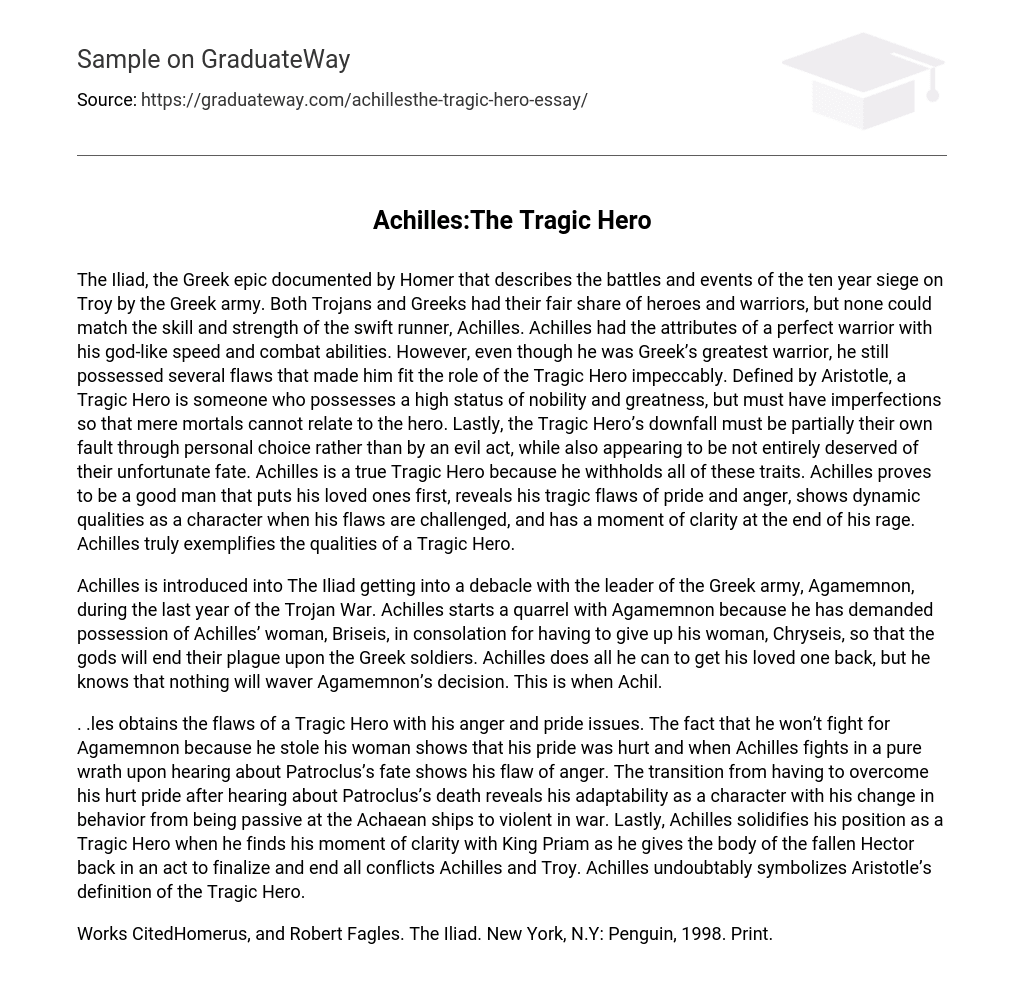The Iliad, an epic poem by Homer, recounts the decade-long siege of Troy by the Greek army. Within this tale, mighty heroes and warriors emerge from both sides – Trojan and Greek – but none rival Achilles in terms of his exceptional speed and combat prowess. Despite being hailed as the greatest warrior among the Greeks, Achilles possesses flaws that classify him as a Tragic Hero. According to Aristotle’s definition, a Tragic Hero is an individual of noble stature and greatness who possesses imperfections that render them unrelatable to ordinary people. Additionally, their downfall must stem partly from their own choices rather than evil deeds while also appearing somewhat undeserving of their tragic fate. Achilles embodies all these traits as a Tragic Hero. He is inherently good-hearted and values his loved ones above all else; however, he exhibits tragic flaws such as pride and anger that are tested throughout the narrative, displaying Achilles’ multifaceted nature as a character. Ultimately, he experiences a moment of clarity after succumbing to rage. Thus, Achilles truly exemplifies the characteristics synonymous with being a Tragic Hero.
In The Iliad, Achilles is introduced when he becomes involved in a dispute with Agamemnon, the leader of the Greek army. This dispute occurs during the final year of the Trojan War. The source of Achilles’ quarrel with Agamemnon is Agamemnon’s demand for possession of Briseis, who is Achilles’ woman. Agamemnon makes this demand as compensation for giving up his own woman, Chryseis. He does so in order to appease the gods and end a plague that is affecting the Greek soldiers. Although Achilles tries to retrieve his beloved, he realizes that it will be impossible to convince Agamemnon. This event serves as a turning point for Achilles as he comes to understand his predicament.
Achilles demonstrates the flaws of a Tragic Hero through his issues of anger and pride. His refusal to fight for Agamemnon due to his stolen woman signifies a wounded pride, while his fierce rage upon learning about Patroclus’s fate exposes his flaw of anger. The transformation from suppressing his injured pride after Patroclus’s death reveals his adaptability as a character, transitioning from passivity at the Achaean ships to violence in warfare. Ultimately, Achilles solidifies his status as a Tragic Hero when he attains a moment of enlightenment with King Priam, returning the body of the fallen Hector to bring resolution and conclude all conflicts between him and Troy. Clearly, Achilles embodies Aristotle’s definition of the Tragic Hero.
Works CitedHomerus, and Robert Fagles. The Iliad. New York, N.Y: Penguin, 1998. Print.





